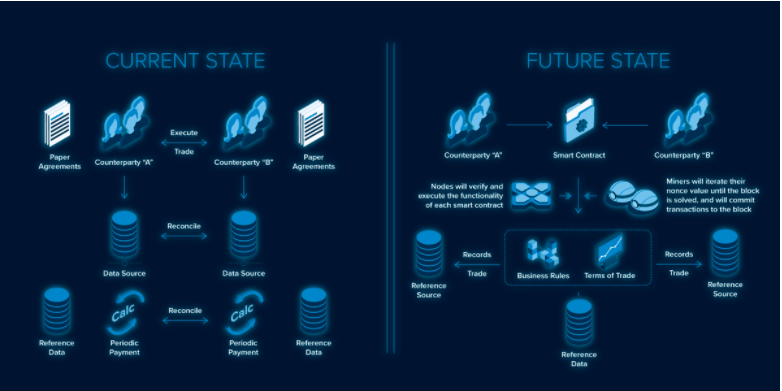Blockchain technologies are still pressing toward a new frontier but are still met with a myriad of challenges that can prove to make or break a prospective crypto/blockchain startup, or cause the industry to stagnate under the goalpost of mass-adoption. Issues such as scalability, coding errors, speed and latency and monetization options for participants and giving value to the respective cryptocurrency on a platform are factoring in to this spiraling issue, that if addressed could bring the industry up in to a new era.
Disclosure: This is a Sponsored Article
Sharing to Secure a Decentralised Future
At the 2017 Blockchain Conference in New York, a well-known car company gave presentation on developing a Blockchain-Based autonomous fleet of vehicles, the spokesperson highlighted that in order to perfect this software and overcome the aforementioned issues, they would need a trillion miles worth of data for their high tech machine learning algorithms and at present the car company had only managed to generate several million miles worth.
At present, whilst the blockchain solves issues of ownership, integrity and the accountability of marketplace vendors, and the Ethereum Networks’ smart contract technologies provide the prime conditions for payments and sharing, competitors aren’t sharing their million miles of data that could address key faults in the emergence of blockchain technologies.
The Missing Link
DApps (Decentralized Apps), are believed to be the next integral component in the blockchain machine, these applications will shape how we interface with the crypto world but are also themselves in dire need of another missing ingredient. ContractNet, a Hong Kong blockchain startup, believes they have found this missing link in form of IoT (Internet of Things) devices. The IoT is an interrelated system of computing devices, digital machines, objects, people or even animals that have unique identifiers with the ability to transfer data across the interwoven network without the need for human-to-human or human-to-computer.
What ContractNet is producing with IoT technology is a public, permissionless Blockchain that has the storage, analysis and sharing of IoT data streams. Creating a framework for sharing IoT data and a diverse platform for developing distributed applications and smart contracts, ContractNet could very well have completed the holy trinity of Blockchain, Smart Contracts and the Internet of Things.
IoT device owners through the ContractNet Blockchain will have access to cutting edge IoT solutions where device owners can endlessly share their data streams in an incentivised and secure way. Whilst this is at play, the next generation of smart contract and DApp developers can gain access the gigantic flows of data and push the frontier forward; being at the ‘intersection of Blockchain technologies’, ContractNet states its philosophy and its purpose is to be the global exchange of IoT data, whilst being the go to platform for the highest calibre of applications on the decentralised web.
Not a “One Trick Pony”
DApps aren’t the only the only target on the ContractNet hit-list, they’ll be separating storage from the blockchain to reduce the costs of storage by 2000 – 8000% eventually becoming cheaper than cloud storage, furthermore they’ll be using the ContractNet native token, CNET, as a utility within the platform, they also aim to provide participants with many monetisation options. Further to this miners will be able to earn CNET for providing storage and computational within the Proof-of-Work consensus mechanism and IoT device owners will be able to sell their data streams. It’s a fully-fledged platform and marketplace of data that could sow the seeds of the Web 3.0 revolution; ContractNet are prepping for the sale of the CNET coin beginning in March 2018.
To find out more head to their website here and check out the whitepaper here.

